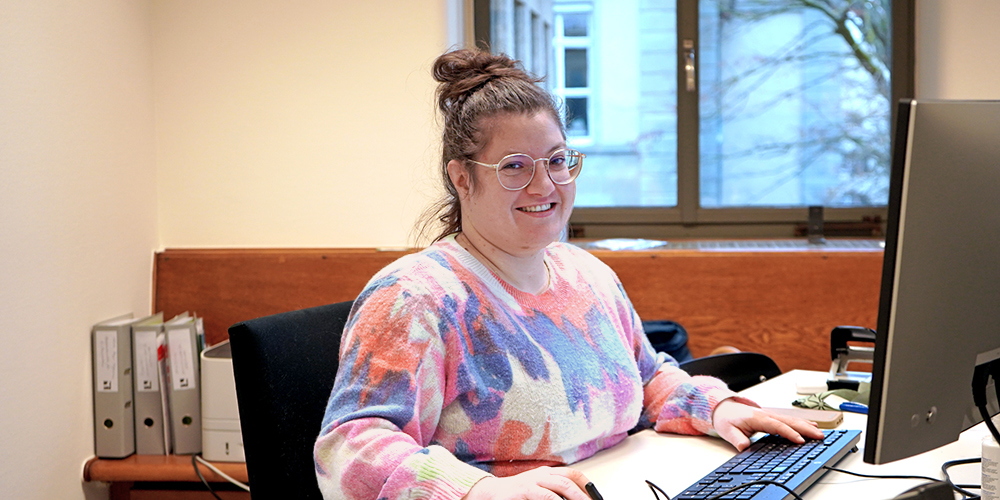A place for refugees at the University of Basel
How are refugees supported before and during their studies at the university? An interview with Anna Meier, Head of the Coordination Office for Refugees.
16 January 2025
Almost every day, Meier receives email inquiries from refugees who want to study at the university or who are already studying. Her task is to support these individuals before and during their studies. “There’s a lot of demand, and they’re definitely making use of our offer,” she explains.
In 2024 alone, Meier received more than 200 inquiries and issued invitations for around 60 initial interviews. The people come from all over the world, with a particularly high number from Ukraine, Turkey, Afghanistan and Iran. These are well-educated individuals who want to expand or complete their academic education in Switzerland.
During an initial interview, Meier clarifies whether the prospective student meets the university’s admission regulations. If this is the case, they can matriculate straight away and begin their studies. “However, many people are still going through the asylum process or need to improve their German in order to be able to start a regular course of study,” she explains.
Collaboration with Offener Hörsaal
This is where Offener Hörsaal (Open Lecture Auditorium) comes in: this association was founded in 2016 by students from the University of Basel with the aim of integrating refugees into everyday life at the university, and Meier has since joined forces with the association too. The Offener Hörsaal allows refugees to take part in seminars for one or two semesters without matriculation, and additionally to attend German courses.
The association also facilitates networking: individuals who use the Offener Hörsaal’s services receive a “buddy”, a student they meet with on a regular basis. There are also other social programs, such as joint excursions and a monthly get-together.
Once matriculation has been successfully completed, the coordination office continues to offer support during their studies. Anna Meier provides advice on financial problems, helps with drafting letters and meets with students regularly for coaching.
From Ukraine to Switzerland
One of the people who contacted the Coordination Office for Refugees last year was Sofia*, a young woman who had fled the war in Ukraine. She had already studied pharmacy and worked as a pharmacist there. However, her diploma is not recognized in Switzerland, so she has to obtain the federal diploma in pharmacy.
Thanks to the Coordination Office for Refugees, Sofia can now attend several seminars in the Pharmacy master’s program starting this fall, bringing her knowledge up to date for the examination. At the same time, she can further her language skills with German courses.
The challenge of coordination
“One challenge in my day-to-day work is coordinating with various bodies and offices,” explains Meier. This requires experience with administrative processes and sometimes negotiation skills. Especially when some cantons would prefer to promote starting a career over studying. “This hampers integration,” says Meier.
But there are also many positive aspects to her work. “The best thing about my job is the positive feedback from the students. After their long journey to get here, they finally have a moment of joy and relief.”
*Name changed by the editorial team
Coordination Office for Refugees
Have you been forced to flee your homeland? Are you interested in studying at the University of Basel or already matriculated at the University of Basel? If so, you can find out more on the website of the Coordination Office for Refugees or contact Anna Meier by email.


